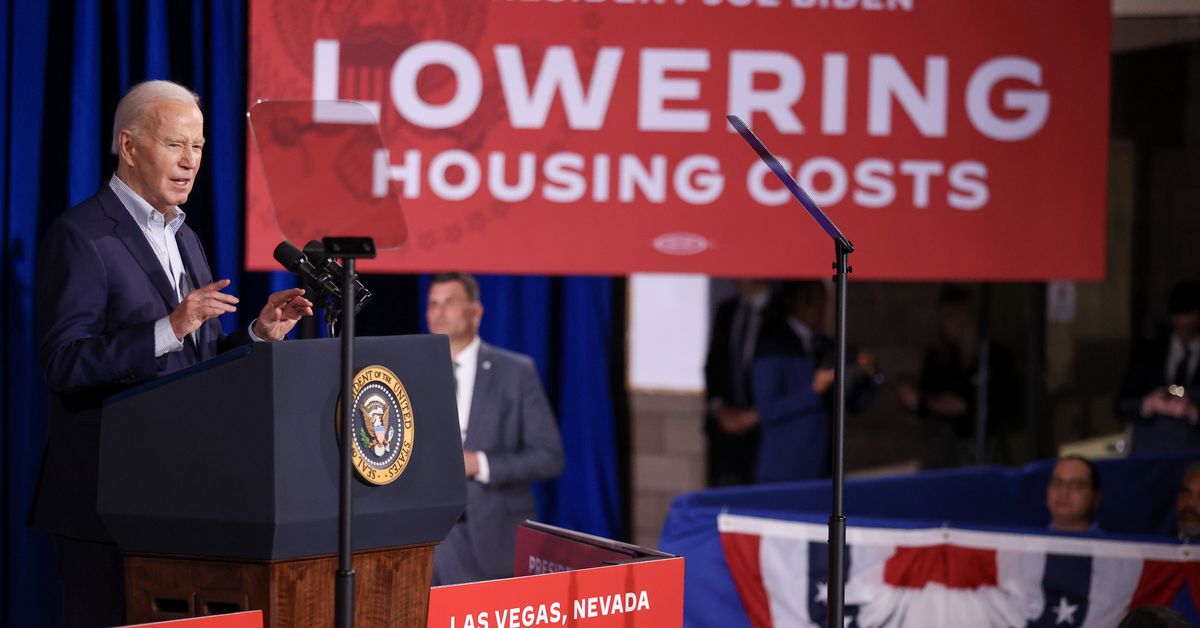Rent got crazy…
I had a 3 bedroom apartment for $1,800/mo.
After extensive work from home prior and during covid, I banked $30,000 cash and bought a 3 bedroom house in 10/21.
My mortgage is just over $2,000/mo. counting insurance.
My old apartment is now $2,300/mo.
I refinanced during the pandemic and went from a 30 year to a 15 year and my mortgage didn’t change. If I tried to take out a mortgage now, it would be too expensive for me, just because of interest rates. It’s a terrible time for housing
I’m in the same exact boat. I’m glad we got lucky, but you shouldn’t have to get lucky to fulfill basic needs like housing. Shits busted and I hope it gets better for others soon.
Exactly the same here, we were renting up until 2018 at 900$CAD/month. Our mortgage is 950$CAD/month and our old apartment is now 1200$CAD/month. All expenses included, it’s s more expensive to rent than to own.
First time buyers can’t hardly get a mortgage now unless you were stashing cash or staying at your parents’ for a while.
“You will own nothing and fuck you it doesn’t even matter if you’re happy anymore you suckers can’t do shit about it.”
Just checked local rentals (Boston Metro West area), cheapest 3 bedroom here in my town is $2,400 a month with only hot water included. That particular complex is a roach infested pisshole.
The luxury apartments they insist on building around here are minimum $3,200 and go up to $3,500+ with again, only hot water included.
Cheapest 1 bedroom available on apartments.com is $1,800 (again only water included) and is a converted attic. You could also rent a room in some else’s house for about $900-1,200 a month off Facebook marketplace.
It’s fucking insanity
City governments are like “but developers pay us for the privilege of putting up the luxury buildings, win-win, right?!” and miss that it doesn’t house any of the population that needs it. I’d rather directly build public housing with my taxes.
I got a VA loan and didn’t need a down payment. Only took a couple years for rent to surpass my mortgage, but I wouldn’t have been able to save the down payment with ever increasing rent.
For profit lending has always been fucking shit up, that’s why Christians forbid it for centuries. (But only if the borrower was Christian)
Of course wealthy Christians just didn’t lend money rather than lend it interest free, but it was still better than letting an 18 year old sign up for 80k in debt it’ll take their whole lives to pay back.
I was pleasantly surprised to learn that a similar, perhaps in some ways better system exists to this day in the world of Islamic finance. It’s far from perfect and has plenty of real-world flaws and downfalls, but it was cool to learn about the spirit and morality behind it.
I’m pretty sure Islam split when Christians still couldn’t charge interest.
It’d be kind of neat how the Abrahamic religions evolved if there werent so many people killing each other because they support the exact same god in slightly different ways.
Lucky you.
I was paying $3k in rent (high COL area in Seattle) and banked 60k and bought a house with a $3k PITI. Even Stevens.
Now my PITI is $3400 with insurance and property tax hikes.
Now that apartment is renting for $2900.
Youre banking 3k+/month into your asset now instead of paying someone elses off. You are making money every month instead of losing it. That alone should make you grin at the price difference.
The deep level of stability and control you get with home ownership should keep that grin going.
The fact, the utter fact, that Seattle rents will return to outpacing your mortgage shortly is something that should make you don clown makeup to begin a Harlequin dance of joy that you own a home in such a high COL area.
Except for the fact that over the first 10 years of the loan, nearly 90% of that payment goes to interest. Amortization and front loaded interest is a bastard. With property tax and insurance, a $500k house will cost about $1.5MM over the life of the loan.
Not trying to dissuade anyone from home ownership, it’s just not as cut and dry as it may seem.
Not really. I’m banking the better part of $3k a month into the interest I’m paying on the loan.
That said, I e gotten to do all the smart home shit I’ve ever wanted and lots of projects that have been really fun. And that puts a grin on my face.
deleted by creator
We are in the wake of one of the largest wealth transfers… robberies in history. The middle class has been drained, the poor have been robbed. There’s nothing they can do to take back all the money they gave to the wealthiest in the country. It’s going to take some serious reforms, none of which Biden is capable of. I’ll fucking list the solutions if you want, as if that’d do anything. The bottom is going to fall out soon enough, we’ll see change.
UBI and/or a wealth tax would do it. Hell I’d settle for USACorp doing Housing, Healthcare, Internet, and Groceries at cost. Especially in areas being literally left behind by the private sector.
There are a handful of politicians who actually care about people. Nothing will change unless we elect more people willing to change things. Barring that, we eat the rich.
Anyone think that interest rates will drop this year?
The fed has practically promised they will, the question is how many times they’ll lower rates
If it gets to 5% I’d be happy with that
Seems likely, but Powell has been cautioning about slow-walking the decrease lately, so who knows
Im hoping to see 3% again so I can refinance lol. I got in just before it hit 5% 2 years ago and got 4.99%.
Me, too!
Anyone think that will improve anything?
The rich folks still have the money, still want the properties. They just took a pit stop to collect some bonds at a good interest rate for a while.
Once those are off the menu…
I doubt it, unless things get unstable near the election
You’d have to go back to around 2000 to find rates on a 30 year fixed comparable to today’s. https://www.freddiemac.com/pmms
Historically we’re still in a period of pretty good rates. However, the reality is who cares about what things were like more than 25 years ago. The new normal is 6ish percent, and we’re over that right now. I don’t think we’re ever going to see rates below 5% again, not counting for some extraneous circumstance nobody can predict. But at this point any relief is going to be meaningful to a lot of people.
On the other hand, home prices are not coming down, and they probably will not come down even if there’s plenty of overinflated valuations out there.
Therefore the only thing to give on affordability is increased supply to keep home values from continuing to grow in a pace that outruns incomes, and lower rates so more people can afford what’s out there today.
You can’t really use interest rates to compare our current situation with recent history.
A feeding frenzy at insanely low interest rates for an extended time caused prices to skyrocket. So even though interest rates are at a historically normal rate, the housing prices have insanely outpaced inflation to a ridiculous degree (in high cost areas like California, which is my situation).
I would be very interested in seeing the change in the distribution of:
- Corp owned properties (hedge funds, etc included)
- Multiple investment property owners
- Short term rentals
It doesnt seems like our population had some sudden boom and new housing couldn’t keep up. Instead, it seems like greedy people have bought up every property they could, and continued to parlay the rental income into additional property purchases. And hedge funds have been buying everything up, even using AI to automate it.
If the above stands up to scrutiny, then legislation should be passed to encourage owner occupation.
- Tax the shit out of any properties beyond 2 or 3. This allows small time landlords, which is healthy for the rental market.
- Out right ban, via heavy taxation for X years until a full ban, businesses / hedge funds from owning single family homes / individually sold condos. The only place we need corporate money in is high density living like apartments. But these should be carefully limited in favor of individually owned condos.
Of course, there should be some grace period to allow owners to sell off their existing properties. But to be blunt, it needs to be relatively short, like 3 years, to actually affect housing prices in a good way.
Being able to own where you live should be a fundamental right to the working class. Instead, housing is treated as a commodity, and the greedy have caused runaway inflation, and the working class are suffering. Morally, I’m perfectly fine with them taking a loss.
For you individuals who bought in the last few years to occupy, you have your own home to call your own, and can afford the payments even if the value goes down. You are not entitled to your “investment” always increasing in value. Society is suffering because of the current paradigm. It needs aggressive correction.
Outright ban of hedge fund ownership of residential properties via life imprisonment for all executives of that hedge fund. Raising taxes just means the renters will pick up the tab.
I don’t think we disagree here.
Rates are higher than the current market can bear, a result of the artificially extended period of historically low rates. The pandemic can only be blamed for some of this. The prior administration juicing the economy against sound economical principals telling us rates should have continued the rise that started around 2016/2017 contributed at least as much and hamstrung our tools to respond.
Housing stock shortages have long list of causes, as you line out. With so many things contributing to the problem it’s hard to cope with, both at a policy level and for us regular folk. An average person needs an explanation that’s easy and memorable, and thereby actionable in terms of throwing their support behind. That’s not easy when there’s not enough fingers to point, solutions to each aren’t clear, and there’s only so much political bandwidth that can be put towards making change.
It’s going to be slow, and not everything will work, but I’m glad there is finally attention on it and it looks like the people who can do things are doing them instead of just talking.
CATO hates it. Which is generally a good thing. Okay, I’ll give it to him for now. He’s stepping up pressure on at least one part of the economy that’s causing pain and suffering. The problem is as always, delivery. The last time he got pressured during campaign season it was about immigration and reforming a system that forced migrants to wait in dangerous areas. Then he continued most of Trump’s policies and even took some of them further.
He needs to deliver or at least show progress. He’s not just a candidate, he has the power to show his willingness before the election this time.
Hey, do Canada next!
“Biden knows you can’t buy a house in Canada”
I did it!
“You wouldn’t download a Canada!”
This is the flip side of the US achieving a “soft landing”, bringing down inflation without triggering a recession. Not having a recession is good, right? Yes, in the main, but one consequence is that asset prices, including housing, will remain elevated for the foreseeable future. These tax credits that Biden’s proposing amount to no more than tinkering around the edges of the basic economic situation, at best. At worst, they could ruin the Fed’s inflation-fighting campaign at the last stretch.
A healthy economy is no good if you get evicted. If too many people get evicted then the floor drops out of the housing market. Again.
Didn’t the housing prices drop during a recession? It really feels that politicians have their own lingo. When people call something “bad” it actually means good; however, when a politician call the economy “good” it really means bad.
This is the best summary I could come up with:
Polling indicates that it’s these voters — who are more likely to be renters — that Biden is now struggling with: those who cast ballots for him four years ago but are now leaning toward Donald Trump or considering staying home on Election Day.
In promoting his economic agenda in the summer of 2023, in what would become known as “Bidenomics,” the president emphasized three main planks: empowering workers, reviving domestic manufacturing, and reining in corporate power through competition.
In a newly released report, the president’s staff economists dedicated an entire chapter to increasing the supply of affordable housing and called for more aggressive federal action to lower costs, like pressuring cities to loosen zoning laws.
Biden also proposed new tax credits for first-time homebuyers and for middle-class families selling their starter homes, and a new $20 billion grant program to increase housing production.
“Biden’s backwards solution is to subsidize demand by handing out more government money to buyers, renters, and developers,” argued Judge Glock, a fellow at the Manhattan Institute, a right-leaning think tank.
It will be hard to make a real federal dent on housing without Congress, and it’s unlikely that any major congressional action will happen before the next election, with Republicans loathe to give Biden any more bipartisan victories to campaign on.
The original article contains 1,105 words, the summary contains 216 words. Saved 80%. I’m a bot and I’m open source!
good bot
Just like that student debt he promised to cancel and then… he cancelled it?
He canceled $132 billion for 3.9 million people.
So, by any metric, it was delivered.
And is working to try and pardon more, according to his own cabinet. The issue is that he has to find backchannels and other legal routes because the SCOTUS said he couldn’t just order the Department of Education to just forgive federal loans.
What about that?









